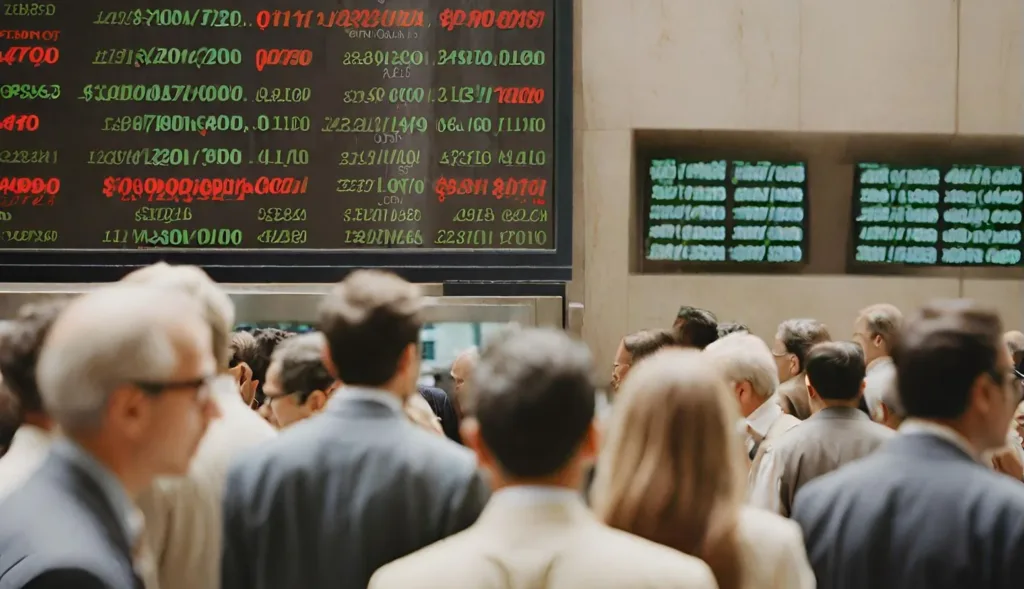What is Stock Market Trading | Different Participants of Stock Market | Long Term VS Short Term Investments
Stock Market Trading, Different Participants of Stock Market and different between Long Term and Short Term Investments
Hi Readers,
Welcome to second episode of Finance Made easy, today we will continue the discussion we had from Episode 1, Click here to read First episode.
After we understand the fundamentals of stock market, today in this article we will discuss about How Trading works in stock market, various Market Participants such as Retail Investors, Institutional Investors, Governing Body and Difference between Trading and Investing so stay tuned !
Table of Contents
How does Trading works
Investor will initially setup a Demat account with the broker. This Demat account will be used in buying and selling of shares.
Investor will approach his broker and place an order to buy or sell a share. This order is similar to the order you place on Amazon to buy a particular product, with the only difference being that you are buying a share of a company. While placing the order with you broker, you will have to provide him with details such as Name of the Stock, Ticker Symbol, Quantity of Shares you want to Buy or Sell in 1 Transaction, Price at which you want to transact etc
For Example,
You Buy Apple’s Stock, Ticker ‘AAPL’, Quantity 1000 Shares @ $ 170.
This Demo transaction will cost you $ 170,000 + Brokerage and Government charges.
Post this transaction is matched with Seller of the same share and price, your Trading account will be deducted with above value and you will receive 1000 Amazon Shares in your Demat account.

When will your Order Match and Execute in Market?
In a market, there are millions of Buyers and Sellers. In above case, we decided to Buy Apple Shock @ $170 Price, once we get someone who will Sell Apple Stock @170 $-
At this time trade will match and be executed in stock market.
This trade matching service is provided by the broker itself and for this service they will charge Brokerage fees which buyer and seller will have to pay to them directly. Such transactions happen million times a day, causing stock price to fluctuate based on its Supply and Demand.
Types of Order in Stock Exchange
We have various Types of Order in stock exchange, we will discuss 2 prominent order types below.
Market Order
Market Order is a order to Buy or Sell of a Stock immediately at current market price. If you want to buy stock at current time without waiting for the price, you can use Market Order. You don’t have to mention the price for your stock buy/sell order.
Advantage – This is the quickest wat to Buy/Sell the stock
Disadvantage – You might Buy stock at much higher price due to market volatility.
Limit Order
Limit Order is a order when you specify a price at which you want to buy the shares. It can be different from what the current price of the stock is. This means you want to buy the share at 10$ when current price of the share is 12$. If in near term, someone is ready to sell their share at 10$, then your order will be matched and executed in market.
Advantage – You can get share at a cheaper price or sell your share at Higher price.
Disadvantage – You will have to wait until the share price touches the price you want to buy/see. You run risk of not buying the share if no-one is willing to sell you the share at that rate.
Above mentioned are the basics of stock, however above are not the only one used in stock trading but Market Order and Limit Order are the one most commonly used order types while trading for stocks.q
Participants in stock market

It is important for you to know the key players involved in Stock markets. Stock market is a dynamic arena with below participants.
Retail Investor
Retail investor is the one like you and me, someone who will invest in the stock market from their personal accounts. They aim to grow their wealth over time by buying and selling stocks in stock market.
Retail investors ideally don’t have much money to disturb market and are typically long term investors with diversified portfolio.
Institutional Investor
Institutional Investors are the one who are considered as a heavyweight of the investment world. They have huge supply of money and are huge organizations. Some of the examples of Institutional Investors are Investment Banks, Pension funds, Mutual Funds, Hedge Funds and Large financial institutions.
Institutional Investors manage enormous sums of funds on behalf of their clients and often have dedicated teams of Analysts to study the markets and make key investment decisions.
Regulatory Authorities

Regulatory Authorities are administrative body for stock market. Regulatory authority is formed to safeguard the interest of the investors and keep a check if all the rules and regulations are being followed across industry.
Security and Exchange Commission is the regulatory authority for US Stock market.
Short Term Investment VS Long Term Investment
Trading is done with Short Term targets where-as Investing is done with a Long term horizon. We will discuss difference between Short Term V/S Long Term investment below.
Short Term Trading
Trading or Intra day trading is a term used when one will buy or sell shares and hold position for a very short period. This duration can be be as short as a single day or a couple or days.
Trader will buy the share not for the fundamental values but on basis on price action moment, Price trend or on Momentum basis.

The main objective behind this is to earn quick profit From stock market. Traders do target to gain 1-3% on a daily basis which when done successfully can make huge money for the trader.
Disadvantage- High risk is the biggest disadvantage of trading. A trader can loose all of his capital in a single trade if he does not anticipate the price moment correctly.
Long Term Investing
Long term Investing is when an investor invests in a stock for a medium to long term. In Long term investing, one will study and analyze the stock and bet on strong fundamentals of the company. The investor do believe in the company be is investing in and is ready to be invested for long term. Long term investments are typically held for more then 5 Years
Short term volatility will not affect Long term investor’s decision, rather he will buy more on dips when market corrects in-order to buy stock at cheaper valuations,

Disadvantage- The disadvantage is that it will take a long time for an investor to accumulate wealth growth. If the investor fails to study the company correctly and if there are fundamental sissues with company then investor might loose all his wealth. Latest examples are Silicon Valley Bank, Washington Mutual Bank, First Republic Bank which posted strong fundamentals but failed due to deteriorating market conditions.
Q: What are stock market trading hours ?
A: Stock market trading hours are 9:30 AM to 4 PM EST.















